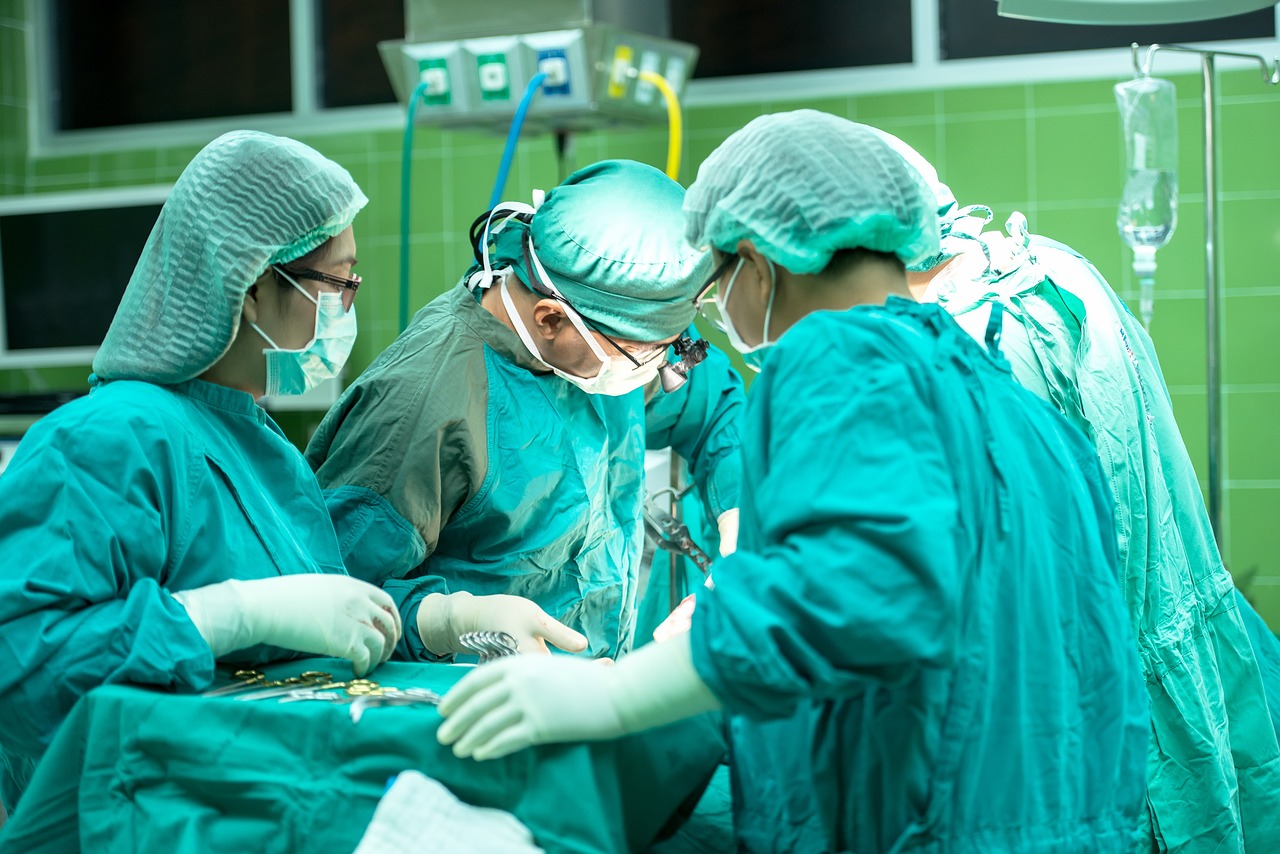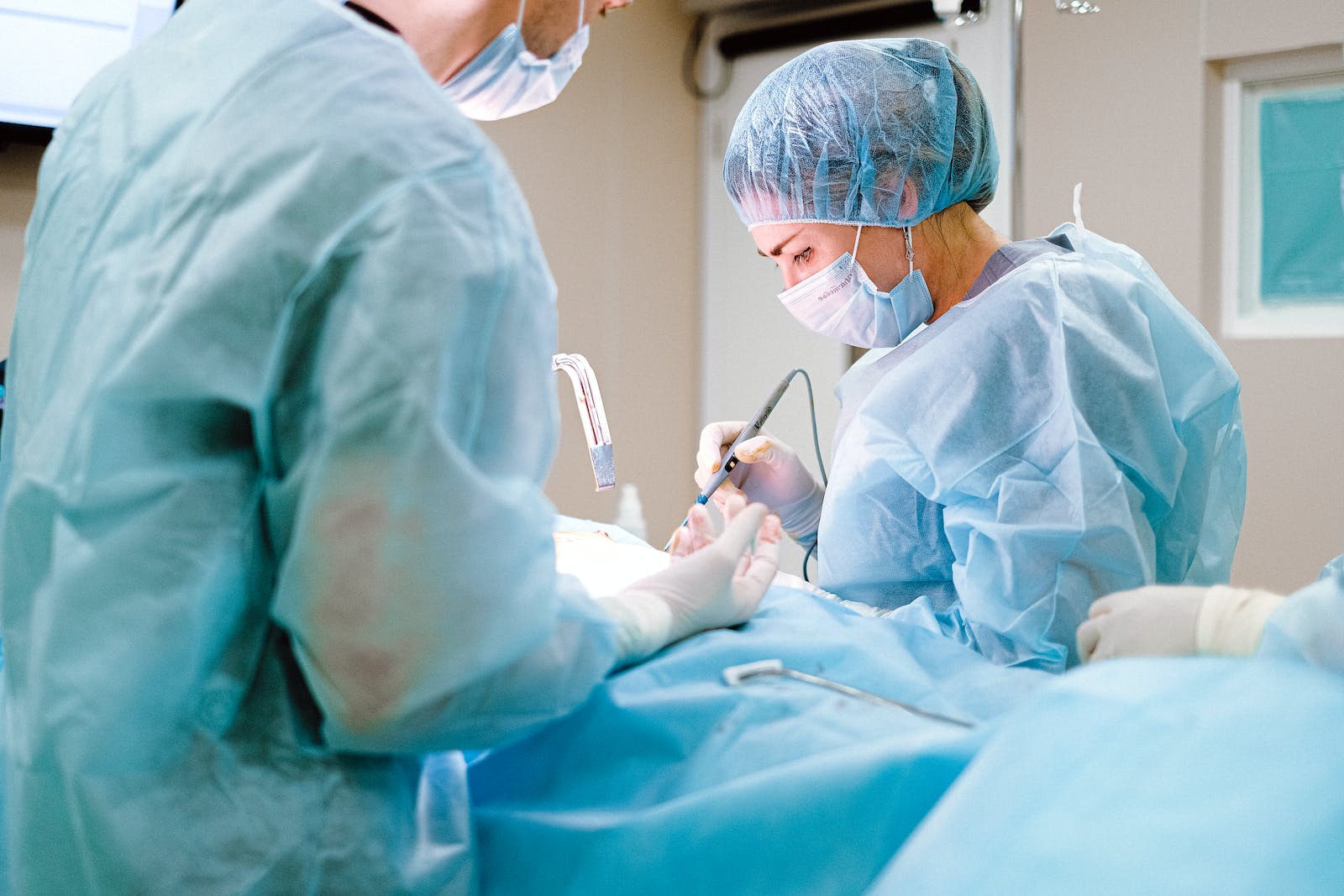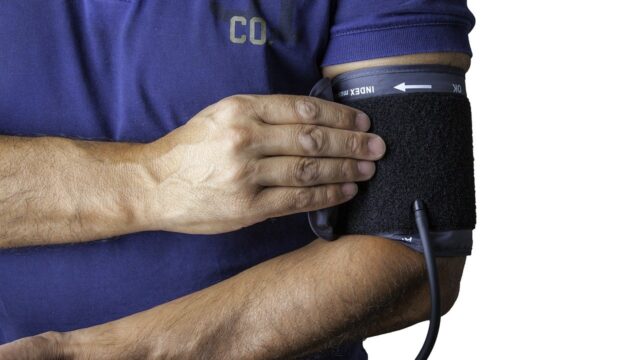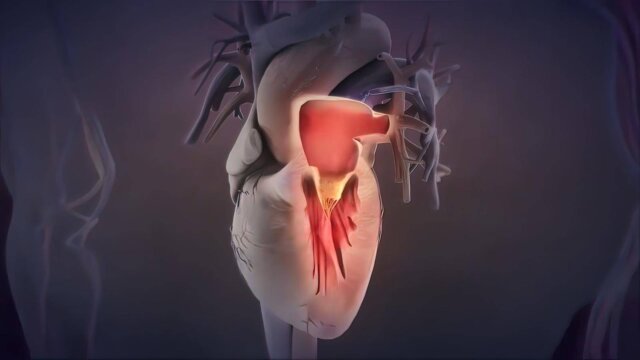FTC disclaimer: This post may contains affiliate links and we will be compensated if you click on a link and make a purchase.
Welcome to our in-depth guide on the journey of recovery from glaucoma surgery. Glaucoma surgery is a critical procedure aimed at reducing eye pressure, thereby preventing future vision loss.
It’s an important part of managing glaucoma, but post-operative care is equally crucial to ensure a successful recovery.
In this article, we aim to equip you with the essential dos and don’ts for a smooth recovery, guided by the expert advice of Thomas V. Johnson, III, M.D., Ph.D. from the Wilmer Eye Institute, Johns Hopkins Medicine.
We will cover various topics including the types of glaucoma surgeries, what to expect after surgery, and how to navigate the recovery process.
Your journey to recovery doesn’t have to be a bumpy ride. Stick with us as we steer you towards a successful recovery after glaucoma surgery.
Understanding Glaucoma Surgery
Glaucoma is a group of eye diseases that can cause irreversible damage to the optic nerve, often leading to vision loss or blindness.
The damage is typically caused by high pressure within the eye. If medications and laser treatments are ineffective, glaucoma surgery may be recommended to prevent further vision loss.
Different Types of Glaucoma Surgeries
There are several types of surgeries aimed at lowering the pressure in your eye:
- Trabeculectomy: Involves creating a new channel to drain the fluid and reduce eye pressure.
- Glaucoma Implant Surgery: A tube is inserted to help drain excess fluid.
- Minimally Invasive Glaucoma Surgery (MIGS): Uses microscopic equipment and tiny incisions to reduce eye pressure. This procedure is often combined with cataract surgery.
Each surgery type has its unique uses and potential risks. It’s important to have a detailed discussion with your surgeon about the benefits and risks of the specific surgery you may undergo.
Success Rate and Recovery Expectations
While glaucoma surgery can’t cure or reverse vision loss, it can help protect your vision from further damage. The success rate of these surgeries is generally high, but complications can occur, including infection or low eye pressure.
Recovery may also involve short-term limitations on activities like driving. Always consult with your healthcare professional for personalized advice and treatment.
Pre-Operative Preparation
The role of your eye doctor is instrumental in preparing for glaucoma surgery. Every step taken prior to the surgery plays a vital part in setting expectations and ensuring a smooth recovery. In the days leading up to the surgery, your doctor will provide pre-operative instructions, which you must adhere to diligently.
- Avoiding certain medications: Some drugs can interfere with the surgery or recovery process. Your doctor will provide a list of medications to avoid.
- Mental preparation: It’s natural to feel anxious before surgery. Open communication with your doctor about your concerns can help ease your nerves.
Remember, the success of the glaucoma surgery and recovery doesn’t solely depend on the surgeon’s skills, but also on how well you follow the guidelines before the surgery. The journey to improved vision begins even before you set foot in the medical office.
Post-Operative Care Basics
After the storm of glaucoma surgery, the rainbow of recovery awaits. But like any rainbow, it requires certain conditions to shine.
Your post-operative care is vital, and your doctor will provide specific instructions for your recovery. It’s like having a treasure map; follow it, and you’ll find the gold of a successful recovery.
Immediate care: Rest is your best friend after surgery, and you may need to take a break from certain activities for a week or two, like bending over or engaging in vigorous tasks. A little birdie might tell you to scratch an itch, but resist! Your eyes are sensitive after surgery, and rubbing or scratching could cause complications.
Post-Operative Instructions:
Your doctor isn’t just handing you a list of dos and don’ts for fun. These instructions are the key to a smooth recovery. Activities like lifting heavy objects or straining should be avoided. Think of it as an enforced vacation from the gym and heavy lifting.
Managing Discomfort:
Post-surgery, you might feel like you’ve got a sandcastle in your eye but don’t fret. Prescribed eye drops can soothe this itchiness (source). Remember, patience is a virtue, especially in recovery.
So, strap in for the journey of recovery. It might be a bumpy ride, but with these tips and your doctor’s guidance, you’ll be back in the driver’s seat in no time.
Restrictions and Precautions
Recovering from glaucoma surgery requires certain precautions to ensure a successful healing process. One of the key concerns is managing activities that could increase eye pressure.
As per advice from the Johns Hopkins Medicine, the following activities should be avoided:
- Exercise: Activities causing significant elevation in heart rate, breathlessness, or excessive sweating should be avoided.
- Lifting more than 10 pounds: Heavy lifting can exacerbate eye pressure.
- Bending over at the waist: This can potentially increase pressure in the eyes.
Additionally, certain activities can increase the risk of infection. These include:
- Swimming or using hot tubs: Water-based activities can expose the eyes to harmful bacteria.
- Wearing reusable contact lenses or makeup: These can potentially introduce foreign bodies to the eye, hindering the healing process.
Driving Post-Surgery
Driving requires careful consideration post-surgery. Due to the sedation used during the procedure, patients are advised not to drive for at least a day following surgery.
After the patch is removed, some patients may be able to resume driving based on their comfort level and vision capability in both eyes.
Coping with Restrictions
While these restrictions may seem daunting, remember they are temporary and crucial for your recovery. Engage in light activities such as reading or watching TV, and always wear eye protection when necessary to avoid injury.
Healing and Rehabilitation
Recovery from glaucoma surgery is a crucial phase and varies with each individual. Generally, most patients heal within a 3 to 6 weeks span. It’s common to experience blurred vision, mild discomfort, and itchiness during the healing process (source).
Eye Drops and Medications
Post-surgery, your eye doctor will likely prescribe a series of eye drops that contain anti-inflammatory and antibiotic properties to prevent infection and facilitate healing. It’s important to use these drops as instructed.
Managing Common Symptoms
- Resist the urge to rub or scratch your eyes, no matter how itchy they feel.
- Wear glasses instead of contacts during recovery to prevent irritation.
- Avoid strenuous activities and heavy lifting to allow your body to heal.
If you experience a sudden loss of vision or increasing redness and discharge, contact your doctor immediately, as these could signal complications (source).
Follow-Up Care and Complications
Post-operative follow-up care plays a vital role in your recovery journey after glaucoma surgery. This involves regular appointments with your eye doctor to monitor healing and prevent potential complications. It is essential to adhere to this schedule and immediately report any suspicious changes to your doctor.
- Infections: Although rare, infections can occur after surgery. Watch for signs such as persistent redness, discharge, or unusual pain in the operated eye.
- Vision changes: Temporary vision changes are common post-surgery, but sudden or drastic changes could signal complications.
If you experience any complications, contact your eye care team immediately. They can provide appropriate treatment options and modify your recovery plan accordingly, ensuring a successful and smooth recovery.
Remember, timely detection and treatment are the keys to averting serious complications. Your proactive role in post-operative care is crucial.
Life After Glaucoma Surgery
Life after glaucoma surgery often brings relief from the symptoms of this challenging eye condition, but it also requires continuous care and vigilance. Your vision may greatly improve, but the risk of future vision loss can still persist.
Many patients may need further treatments or even more eye surgery. It’s crucial to maintain a proactive role in managing your eye health. This includes regular check-ups with the eye doctor and adhering to prescribed medication routines.
- Use of eye drops may continue to manage eye pressure and prevent additional damage to the eyes.
- Protect your eyes from injury and irritation. This can be as simple as wearing sunglasses to shield your eyes from excessive light and dust.
- Healthy lifestyle choices, like a balanced diet and regular exercise, can also support overall eye health.
Lastly, don’t hesitate to reach out to your eye care team if you notice any new symptoms or have concerns. Your surgery is a major step, but remember, the journey to preserving your vision is ongoing.
Conclusion
In wrapping up, let’s recap the crucial dos and don’ts for a successful recovery after glaucoma surgery. Remember to use your eye shield, adhere to your eyedrop regimen, and don’t forget your glasses.
Avoid rigorous exercise, wearing contact lenses, and using cosmetic products.
These may seem like small things, but they are the building blocks of a smooth recovery. Think of it like baking a cake – you can’t just throw all the ingredients in a bowl and hope for the best.
You need to carefully follow the recipe. And in this case, your ophthalmologist is your master chef, guiding you through the process.
Maintaining communication with your ophthalmologist and reporting any unusual symptoms is essential. Like a vigilant lighthouse keeper, your doctor guides you away from potential dangers and toward a safe recovery.
Don’t hesitate to contact our eye center for further questions or concerns. We’re here to support you on your journey towards a better vision.









